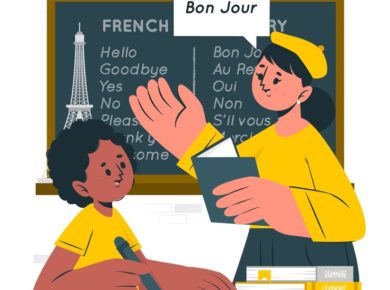Numerous reasons could play a vital role in students having trouble learning to read. However, many kids can become successful readers if properly diagnosed and given the right intervention, especially if spotted early. Struggling readers are those who cannot read anything properly like others. For example, they might stammer while reading, the words get jumbled for them, they don’t concentrate, or they might have poor reading skills. In short, readers who cannot read anything fluently are defined as struggling readers. Teachers can help struggling readers deal with this issue and they can overcome it easily. Here are ways for teachers to help struggling readers.
Why students are dealing with reading issues
Reading problems are a frequent issue; it happens to almost everyone, including youngsters, who are experiencing some sort of reading difficulty. Reading challenges can also affect other aspects of learning, such as writing, spelling, fluency, and comprehension because it is such a crucial ability.
Students find it very difficult to perform well in school because of these obstacles, which frequently affect self-esteem. It doesn’t imply that your child isn’t intelligent if he or she has reading difficulties. He or she may be having difficulties for various reasons, most of which have nothing to do with IQ. However, finding out why your child is having difficulty can help him, or her build the skills necessary to become a more proficient and self-assured reader.
Some kids may suffer because they lack access to education in general, receive insufficient literacy training, or have particular learning disorders that limit the development of their reading abilities. However, with the help of a thorough evaluation, teachers can help struggling readers and successfully address the underlying causes of reading challenges.
Here are the ways teachers can help the struggling readers
There is no such problem that is impossible to overcome. Teachers can even make online reading programs for struggling readers and also help with the below pointers.
Foster a love of reading at home
Allowing students to check out books overnight or for a few days will support family reading time. Send books home that the student can use successfully. Remind the parents of struggling readers throughout your interactions with them that daily shared reading is essential to literacy development. Remind kids that seeing that reading and writing are commonplace in everyday life can inspire them to participate more.
Give parents ideas for enjoyable, simple activities they may do at home to promote literacy development. Encourage children to play with magnetic letters or large letters cut from magazines, for instance. Encourage them to chat to their youngsters frequently.
Consider your own research-based instruction
Children who receive quality beginning reading instruction learn to recognize words, comprehend what they read, become fluent readers, and cultivate a love of reading that will inspire them and stick with them for the rest of their lives. To provide kids the experiences they require, it is systematic and incorporates training in both understanding and decoding and making strategies for struggling readers.
Most significantly, effective reading education is adapted to each student’s unique needs. Find some professional development if you are worried about your amount of expertise in a particular area of teaching reading. Discuss seminars and classes with senior teachers and principals to learn how to incorporate the five components.
Avoid distraction
Readers that struggle are frequently quickly sidetracked. They are extremely perceptive to stimuli, and every new sound or movement causes them to shift their focus. It is preferable to sit away from busy locations where students frequently enter and exit the room, such as doorways leading out of the classroom or close to the teacher’s desk. It is best to sit near the front of the class as close to the teacher to help reduce background noise while trying to listen to instructions.

Prepare with oral reading in the classroom
A struggling reader’s greatest concern is frequently performing aloud because it exposes that deficiency. Give your students enough time to practice with a voice recorder, an instructor, or a friend before presenting it to ensure their success. In this way teaching helps you learn easily.
Investigate kids’ interests
Incorporate a variety of reading materials for independent reading in your classroom. Everyone is not a fan of fiction books. However, a reluctant reader can be persuaded to read by various print/visual texts, including comic books, periodicals, and nonfiction books.
The confidence of reluctant readers can be increased through shared reading. The readers are starting to recognize prospective language that could be utilized in the text as the teacher awakens knowledge. When they are prepared, the teacher helps students to participate. Multiple readings equal multiple chances for achievement for struggling readers.
Conclusions
Teachers are not less than God on earth. Teachers can guide students with every struggling issue in terms of education. They can help the students in overcoming reading issues as well.
If you are passionate about teaching and looking for your own platform, then connect with Classplus. You can get your own app and manage everything with ease. Connect with us and talk to our experts now to know more about it!




